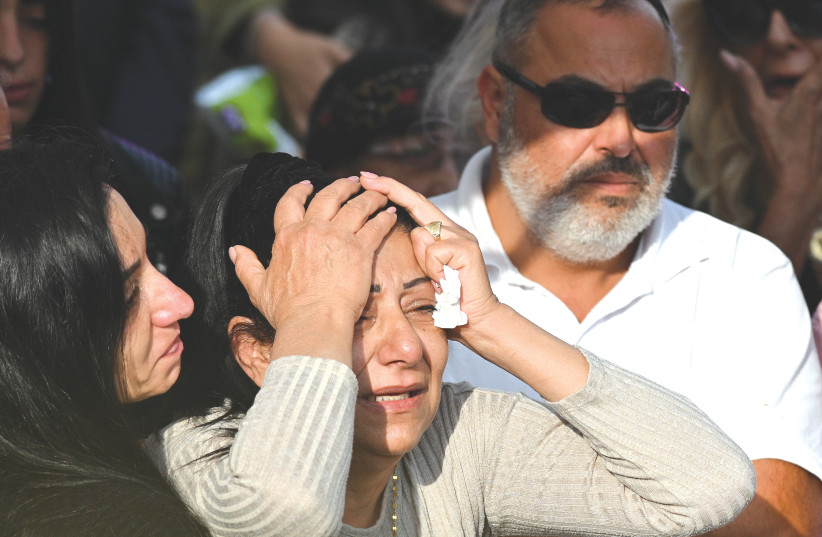A typical Hebrew phrase says, “Not every day is Purim,” meaning that the occurrence of a particular positive practice doesn’t guarantee its repetitiveness.
And while Purim was marked in Israel recently, it seems that not every Purim was like this. For a nation still grieving following October 7, Purim of 2024 was less joyful, more restrained, and tragically different.
Yet another unusual aspect characterized Purim. For the first time since the massacre, it forced Israeli society to debate the legitimacy of celebrating in public. More than five months after October 7, varying voices argued that such celebrations were vital for national resilience and the true testimony of overcoming the darkness of terrorism.
Others claimed that public parades or clubbing, for example, were a distasteful and inappropriate celebration, exemplifying a lack of solidarity while more than 130 hostages – among them women and children – are still in Hamas’s captivity. Many of these discussions were held privately, occasionally accompanied by emotions of guilt, hardship, and shame. A publicly critical illustration was provided when the Jerusalem municipality decided to conduct its Purim parade for the first time in four decades and was met with a protest by the hostages’ family members. Following a heated debate, the city justifiably decided to change the event’s character and name, lower the volume of the music, and express more sympathy.
Less than two months before Israel’s Independence Day, similar dilemmas begin to appear. Celebrated in proximity to Memorial Day – and only a week after Holocaust Day – Israeli Independence Day is a mix of grief and joy anyway. The current debate promises to make it even more complicated.

This was a heartbreaking debate not only because of the terrible circumstances that characterized it but also due to its profound implications for Israeli society, reflected through the five stages of grief: denial, anger, bargaining, depression, and acceptance. For the past five months, it seems that Israeli society has experienced the first four of them simultaneously: We could not believe thousands of civilians were simply abandoned to the hands of ruthless murderers and rapists. We were furious in the face of the atrocities and the intelligence and operational negligence. We constantly wondered whether we had weakened ourselves with endless political debates in the months leading to the attack. And we were sad. Very sad.
Debate on public celebrations
The past debate on public celebrations – either on Purim or Independence Day – suggests we might move to the fifth stage, acceptance. This is worrying since acceptance here could mean implicit consent to a reality in which civilians are held hostage and tortured under the excuse, “Life must go on.” The inevitable outcome of such consent could also be forgetting those left behind.
This does not mean one should abstain from any pleasure until the war ends. It does mean, however, that public celebration entails a more profound implication in the current Israel. In other words, certain times are so unique, so radical, so dramatic – that acting like yesterday completely misses the meaning of the present and the price of tomorrow.
This is a pivotal moment in Israeli society. It is an elusive spark in a nation’s evolution, which will determine its ability to emerge from a tragedy as united as it thought it was. Its choices and actions now could teach us its course for years to come.
The writer is a former director of Israel’s National Public Diplomacy Unit, and a commentator for Relevant – a news and content app and platform.
